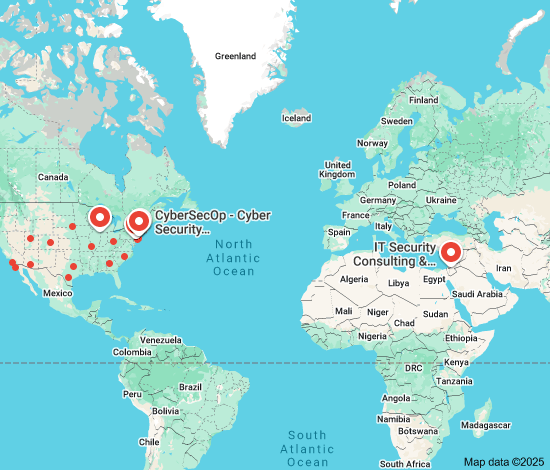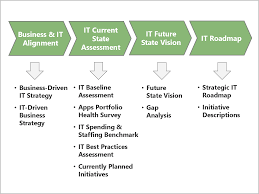Empowering Your Business with Expert IT Security Consulting Services
The Importance of IT Security Consulting
In today’s digital age, cybersecurity threats are becoming more sophisticated and prevalent than ever before. Organizations of all sizes are at risk of cyberattacks that can compromise sensitive data, disrupt operations, and damage their reputation. This is where IT security consulting plays a crucial role in helping businesses strengthen their defenses and protect their assets.
What is IT Security Consulting?
IT security consulting involves the assessment, planning, implementation, and management of security measures to safeguard an organization’s information systems and data from potential threats. Experienced IT security consultants work closely with businesses to identify vulnerabilities, develop tailored strategies, and deploy effective solutions to mitigate risks.
The Benefits of IT Security Consulting
By engaging with IT security consultants, organizations can benefit in the following ways:
- Risk Assessment: Consultants conduct thorough assessments to identify security gaps and vulnerabilities within the organization’s infrastructure.
- Customized Solutions: Consultants design personalized security solutions that align with the specific needs and requirements of the business.
- Compliance Adherence: Consultants ensure that organizations comply with industry regulations and standards related to data protection and privacy.
- Ongoing Support: Consultants provide continuous monitoring, updates, and support to maintain a strong security posture in the face of evolving threats.
Hiring an IT Security Consultant
When selecting an IT security consultant, it is essential to consider their expertise, experience, certifications, and track record in handling similar projects. A reputable consultant will work collaboratively with your team to enhance cybersecurity practices and create a robust defense mechanism against cyber threats.
In Conclusion
IT security consulting is a proactive approach that helps organizations stay ahead of cyber risks and protect their valuable assets. By investing in expert guidance and tailored solutions, businesses can fortify their defenses against cyber threats and safeguard their future success in an increasingly digital world.
7 Essential Tips for Effective IT Security Consulting
- Conduct thorough security assessments to identify vulnerabilities.
- Develop customized security solutions based on the specific needs of each client.
- Stay updated on the latest cybersecurity threats and best practices.
- Provide regular training sessions to educate employees on security protocols.
- Implement multi-factor authentication to enhance account security.
- Establish incident response plans to effectively handle security breaches.
- Maintain open communication with clients to address any concerns or questions promptly.
Conduct thorough security assessments to identify vulnerabilities.
Conducting thorough security assessments is a critical step in IT security consulting to identify vulnerabilities within an organization’s information systems. By systematically evaluating the infrastructure, applications, and processes, IT security consultants can pinpoint potential weaknesses that could be exploited by cyber threats. These assessments provide valuable insights that enable businesses to prioritize their security efforts, implement targeted solutions, and strengthen their overall defense against malicious attacks.
Develop customized security solutions based on the specific needs of each client.
Developing customized security solutions based on the specific needs of each client is a fundamental tip in IT security consulting. By tailoring security measures to address the unique challenges and requirements of individual organizations, IT security consultants can provide more effective protection against cyber threats. This approach ensures that businesses receive personalized solutions that align with their operations, data sensitivity, and risk tolerance levels, ultimately enhancing their overall cybersecurity posture and resilience in the face of evolving digital risks.
Stay updated on the latest cybersecurity threats and best practices.
Staying updated on the latest cybersecurity threats and best practices is essential in the realm of IT security consulting. With cyber threats evolving constantly, being informed about emerging risks and effective defense strategies is crucial to safeguarding sensitive data and maintaining a secure digital environment. By staying abreast of current cybersecurity trends and adopting best practices, organizations can proactively protect themselves against potential cyberattacks and ensure the resilience of their IT infrastructure.
Provide regular training sessions to educate employees on security protocols.
Regular training sessions are a crucial aspect of IT security consulting, aimed at educating employees on security protocols. By providing ongoing training, organizations can enhance employee awareness of potential cybersecurity threats and best practices for mitigating risks. These sessions empower staff to recognize phishing attempts, secure their devices, and follow established security protocols to protect sensitive data. Ultimately, investing in regular training helps create a culture of cybersecurity awareness within the organization, strengthening its overall defense against cyber threats.
Implement multi-factor authentication to enhance account security.
Implementing multi-factor authentication is a highly effective strategy to enhance account security in IT security consulting. By requiring users to provide two or more forms of verification before accessing their accounts, such as a password and a unique code sent to their mobile device, organizations can significantly reduce the risk of unauthorized access and data breaches. Multi-factor authentication adds an extra layer of protection that makes it harder for cyber attackers to compromise sensitive information, ultimately strengthening the overall security posture of the organization.
Establish incident response plans to effectively handle security breaches.
Establishing incident response plans is a critical aspect of IT security consulting. By creating detailed protocols and procedures for handling security breaches, organizations can minimize the impact of cyber incidents and swiftly respond to mitigate potential damage. Incident response plans outline clear steps to identify, contain, eradicate, and recover from security breaches in a structured and efficient manner. Having these plans in place ensures that businesses can act decisively during times of crisis, maintain business continuity, and protect their valuable assets from cyber threats.
Maintain open communication with clients to address any concerns or questions promptly.
Maintaining open communication with clients is a fundamental aspect of effective IT security consulting. By fostering transparent and responsive interactions, consultants can address clients’ concerns and questions promptly, building trust and ensuring that their security needs are met efficiently. This proactive approach not only enhances client satisfaction but also allows consultants to tailor solutions effectively to mitigate risks and strengthen overall cybersecurity measures.





